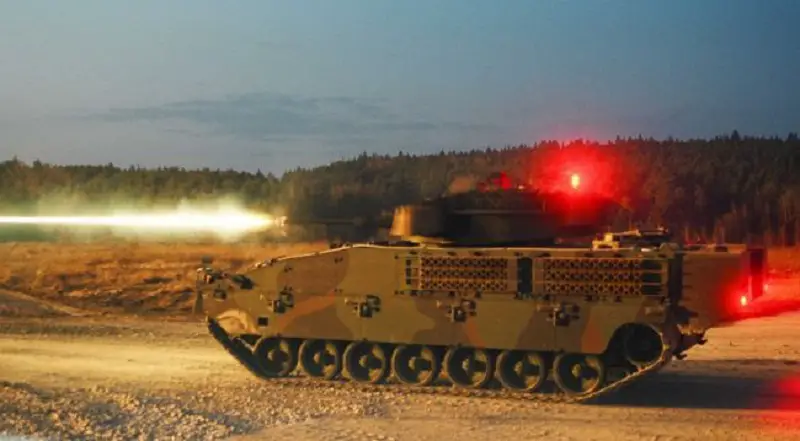In a recent announcement at the JANSA barracks, the Austrian Federal Minister of Defense, Mag. Klaudia Tanner, together with General Rudolf Striedinger, the Chief of the General Staff, unveiled plans to invest approximately 561 million euros. The investment aims to enhance the operational capabilities and extend the service life of the Ulan infantry fighting vehicle. The Ulan, also known as the ASCOD Ulan, was introduced into the Austrian Army in 2002 as a collaboration between Austria and Spain. One notable upgrade involves the installation of a more powerful main aiming device (HZE) on the front left of the turret. This upgrade, proposed by the battalion firing instructor of Panzergrenadier Battalion 35, aims to enhance accuracy and targeting capabilities. The previously utilized HZE will be retained as a redundancy measure. Following a comprehensive protocol, the first three SPz vehicles were handed over to GDELS-Steyr, with the initial tank transferred from the Jansa barracks to Vienna-Simmering on March 9, 2023. This infantry fighting vehicle will serve as the prototype for the subsequent fleet, and the eagerly anticipated delivery of the first modernized IFVs to Panzergrenadier Battalion 35 is underway.
In collaboration with General Dynamics European Land Systems-Steyr (GDELS-Steyr), a comprehensive study was conducted in 2021 to identify the components that require replacement to ensure the Ulan remains in service for another 15 years. Initially, only about one-third of the infantry fighting vehicles (IFVs) were included in the obsolescence adjustment plan due to budget constraints. However, following the allocation of additional funds through the national defense financing law in response to the crisis in Ukraine, the entire Ulan fleet is now included in the program, with an estimated budget of approximately 370 million euros. The obsolescence adjustment program encompasses a range of measures and activities. Each Ulan will undergo complete dismantling and repainting, adopting a new green color (RAL6031) similar to that used for the Pandur EVO or the Husar vehicles. The standardization of the toolbox size will also be evident externally, providing additional storage space.

The driver’s experience will be significantly improved through a new, predominantly digitized instrument panel. Night vision capabilities will be enhanced by a system incorporating thermal imaging and low-light cameras, which display information on a screen. A foldable periscope will replace the existing one, allowing for screen viewing. Furthermore, front and rear cameras will be added, and traditional headlights and rear lights will be replaced by more efficient LED lights. The entire crew will benefit from a new, more powerful heater that provides 30% more heating capacity than the previous version. Additionally, all IFVs will be equipped with stretcher attachment points, enabling the safe transportation of wounded personnel away from danger. GDELS-Steyr’s plant in Vienna-Simmering will carry out these activities.
The ASCOD (Austrian Spanish Cooperation Development) armoured fighting vehicle family is the product of a cooperation agreement between Austrian Steyr-Daimler-Puch AG and Spanish General Dynamics Santa Bárbara Sistemas (both companies are now divisions of a unit of General Dynamics). Weighing approximately 28 tonnes and measuring around 9.5 meters in length, the Ulan is equipped with a 30 mm Mauser MK 30/2 cannon as its primary armament, housed in a turret. It also features a secondary armament consisting of a 7.62×51mm NATO FN MAG machine gun. The Ulan’s protection is ensured by rolled steel armor, with additional options for explosive reactive armor and composite armor to enhance resistance against enemy threats. Powered by a diesel engine and employing a torsion bar suspension system with Piedrafita rotary dampers, the Ulan can achieve a maximum speed of 72 km/h on roads, making it a highly agile and fast vehicle suitable for various terrains. Known for its versatility, the Ulan can accommodate a crew of three, along with eight additional passengers.















